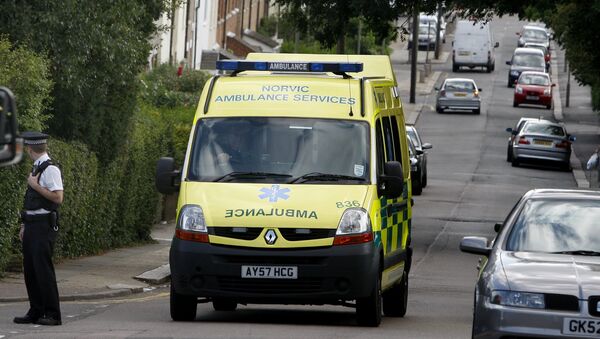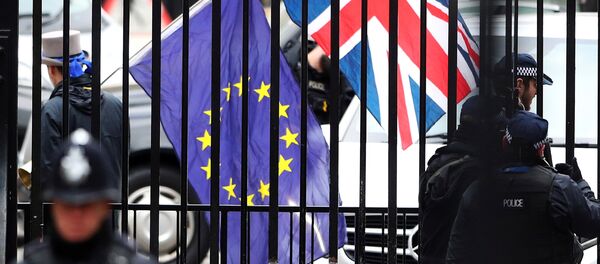The UK government pledged earlier in March to ensure there is no hard border between Northern Ireland and the Republic of Ireland. However, a change in the relationship between the United Kingdom and the European Union could undermine the numerous cross-border initiatives that support public health in Northern Ireland, the think tank discovered.
According to the report, released by The UK in a Changing Europe independent think tank on Wednesday, health care integration is significant on the island of Ireland, including shared health care services, so Brexit would pose a challenge to UK aspirations of avoiding a hard border in Ireland.
Health Across Border
According to The UK in a Changing Europe academics Mark Flear, Katy Hayward, and Tamara Hervey, the existing access to a variety of health care services for patients in Ireland and Northern Ireland is a good example of the integration between the United Kingdom and the European Union.
"Services designed for both sides of the Irish border meet collective healthcare needs in the area. Sexual health, diabetes and eating disorders are all treated in this way, with integrated services offered to patients in both Northern Ireland and Ireland," the report read.
"The circulation of health-related goods and services, health professionals and patients, and the sharing of some facilities and funding across the Irish border will be challenged by Brexit … reciprocal arrangements between healthcare providers in NI and the Republic of Ireland … would be in doubt if a ‘hardening’ of the customs border between the UK and the EU produced restrictions on the movement of pharmaceutical products or medical devices, or even medical staff," the report said.
UK Prime Minister Theresa May said in late February that a customs union with the European Union would betray the outcome of the Brexit vote. President of the European Council Donald Tusk warned on March 1 in a press statement released by the council’s press service that the UK stance on the absence of a customs union between the United Kingdom and the European Union might lead to a hard border between Northern Ireland and Ireland.
Funding for UK Healthcare
Another challenge outlined by the think tank’s report is that the European Union funds programs supporting UK health services. The Regional Development Fund and PEACE program help with the provision and development of medical services in Northern Ireland and across its border, along with Interreg Europe that facilitates medical projects.
According to the report, the Withdrawal Agreement does not, at this point, include the legal framework for this funding from the European Union to continue.
"The UK-EU Joint Report in December 2017 pledged that future support for NI through PEACE and Interreg would be ‘examined favourably.’ But this agreement is yet to see legal form and it leaves uncertainty for similar projects in Scotland," the report said.
Prior to a vote on Brexit, which took place in June 2016, the Vote Leave campaign claimed that the United Kingdom contributed 350 million pounds ($486 million) to the EU budget per week. The claim was made alongside the proposal to use this contribution to the European Union to fund the NHS instead after Brexit.
Staff Shortages
The report has also indicated that the staffing within the NHS is reliant on the free movement of people within the European Union. Statistics released by the House of Commons Library on February 7, showed that 62,000 staff members working in the NHS in England were EU nationals. They make up 5.6 percent of all NHS staff.
"Whatever the promised new Immigration Bill provides, unless NHS and social care workers are placed in a special category, they will be vulnerable to measures designed to limit immigration," the report said.
Under the Withdrawal Agreement, EU nationals working in the UK health care system will face the same restrictions to their movement as third country nationals. According to the report, this will mean that the NHS will face staff shortages.
"This might mean that vacancies are not filled, and EU nationals already working in the health service will face ongoing uncertainty about their status. The imposition of additional barriers to potential NHS staff from the EU might also make it harder to recruit staff from these states," the report stated.
The issue of control over migration was at the center of the campaign before the 2016 Brexit referendum. The ruling Conservative Party has stressed that the departure from the European Union would allow the United Kingdom to regain control of its borders.
In March 2017, May officially invoked Article 50 of the Lisbon Treaty, launching the withdrawal process. Brexit negotiations between the United Kingdom and the European Union started in June and are due to be completed by the end of March 2019.





